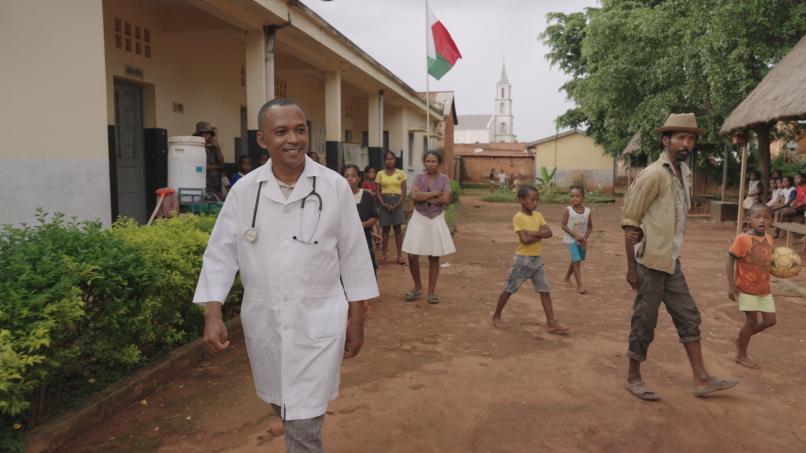Powering Healthcare in Madagascar: Market Assessment and Roadmap for Health Facility Electrification
This market assessment and roadmap was developed to inform efforts on powering healthcare facilities in Madagascar. Specifically, it aims to:
- Provide the government of Madagascar and its development partners with data on the extent of the energy deficit that persists in the country’s healthcare sector, including non-electrified and semi-electrified facilities.
- Present strategic information and implementation guidelines that the government and its partners need to allocate the investments required to implement sustainable electrification of healthcare facilities (HFs).
- Propose long-term sustainable model options, including innovative approaches for the provision of continuous and reliable electricity services. This does not involve formulating a tailored solution for each HF.
Key findings:
- The Malagasy healthcare system comprises 3,898 health facilities and relies largely on the public sector.
- Approximately 75% of basic healthcare centres have no access to electricity or are equipped with a single independent solar refrigerator.
- The estimated potential market for health facility electrification by 2030 is 2,274 facilities. This will require a total investment of USD 83 million over the next 10 years.
- Four categories of solutions are recommended to achieve sustainable electrification of health facilities:
- Technology, such as stand-alone solar solutions and/or battery back-up, following thorough energy audits to assess the needs of health facilities.
- Business models, like Build-Operate-Transfer (BOT), Energy-as-a-Service (EaaS), Pico PV Pay-As-You-Go (PAYG) system, etc. to ensure sustainable revenue sources for the health facilities, particularly covering operation costs in the long run.
- Integration to ensure that there is coordination between key stakeholders across the health and energy sectors, and that multi-dimensional indicators, i.e, technical, operational and impact of electricity on health, are used to monitor such projects.
- Roadmap execution following a bottom-up approach to ascertain the real needs of health facilities.
- The roadmap for healthcare electrification proposed in this report is made of three phases from 2024 to 2032:
- Phase 1 - Structuring and cluster test: Will focus on structuring the integrated programme with the key stakeholders and setting up a pilot project on the sustainable solvency of HFs
- Phase 2 - Demonstration and implementation: Expected to result in at least 1,700 healthcare facilities having stand-alone solar plants with more sustainable business models
- Phase 3 – Consolidation: Will provide all basic health centres and district referral hospitals with sustainable access to reliable electricity, as well as improved health services.
This research and analysis was produced by SEforALL and the consultancy teams at TTA (TramaTecnoAmbiental global consulting and engineering company) and AIDES (Sustainable Investment Support Ltd.), in close collaboration with Madagascar’s Ministry of Public Health (MSanP) and the Ministry of Energy and Hydrocarbons (MEH), as part of a programme funded by the Global Energy Alliance for People and Planet (GEAPP).

